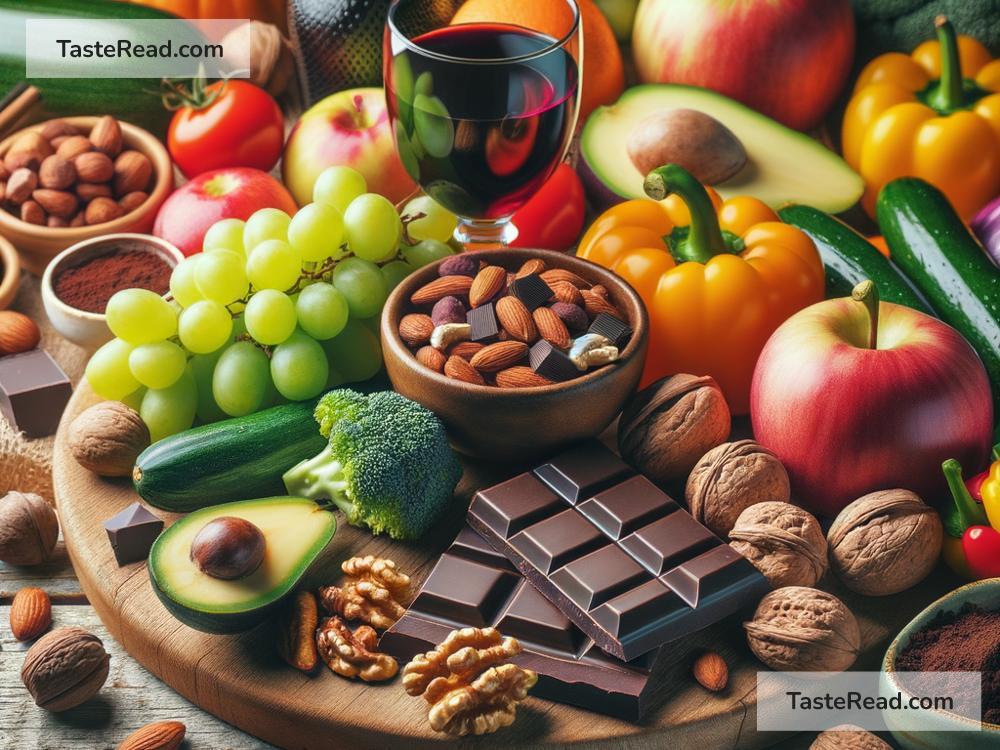Understanding the Role of Polyphenolic Compounds in Health
Have you ever heard about polyphenols? They might sound complicated, but these compounds are everyday superheroes quietly working to keep us healthy. Found in fruits, vegetables, tea, coffee, wine, and even chocolate, polyphenols are natural chemicals that offer impressive health benefits. Let’s unwrap the science in simple terms and learn how these compounds can improve our well-being.
What Are Polyphenols?
Polyphenols are compounds naturally found in plants. They are responsible for many of the characteristics we love about food, like the rich color of berries, the bitterness in coffee, or the sharp taste of green tea. Scientists divide polyphenols into four main types:
- Flavonoids: These are found in foods like apples, onions, and green tea.
- Phenolic acids: Found in coffee, spices, and fruits like cranberries.
- Stilbenes: Resveratrol, found in red wine, is the best-known example.
- Lignans: Found in seeds like flaxseeds and whole grains.
These compounds act as essential protectors for plants. They help plants fight off diseases, defend against pests, and stay healthy under stress, like bad weather. When we consume plant-based foods, polyphenols provide similar protective benefits for us!
Why Are Polyphenols Important for Health?
Polyphenols act like tiny warriors in your body, defending your cells against damage. They are packed with antioxidants, substances that fight harmful molecules called free radicals. Think of free radicals as rowdy troublemakers—they can damage your cells and increase the risk of chronic diseases like cancer, diabetes, and heart disease. Polyphenols help neutralize these free radicals, keeping your body safe.
That’s not all! Polyphenols also have anti-inflammatory properties. Inflammation is the body’s response to injury or infections, but prolonged or chronic inflammation can lead to diseases such as arthritis, heart problems, and even Alzheimer’s. Polyphenols help calm things down by reducing unnecessary inflammation.
Key Health Benefits of Polyphenols
Here’s a look at how polyphenols can make a difference in your health:
1. Heart Health
Polyphenols are great for your heart! They’re known to lower blood pressure and improve blood flow. A specific type found in green tea, flavonoids, helps prevent blood vessel damage and reduces cholesterol levels. Red wine contains resveratrol, which may protect against heart disease when consumed in moderation.
2. Better Blood Sugar Control
If you’re worried about diabetes, polyphenols can help. They improve how your body uses insulin, the hormone that controls blood sugar levels. Foods like apples and berries contain polyphenols that may lower blood sugar spikes after meals, which is especially helpful for people with type 2 diabetes.
3. Brain Health
Polyphenols can help keep your brain sharp. Research shows they may reduce the risk of cognitive decline and diseases like Alzheimer’s. Flavonoids found in tea and cocoa have been linked to better memory, attention, and overall brain health.
4. Gut Health
Your gut is home to trillions of bacteria that play a significant role in your overall health. Polyphenols act as food for good gut bacteria, which help in digestion and keep harmful bacteria in check. For instance, phenolic acids found in coffee encourage the growth of helpful microbes in your gut.
5. Cancer Prevention
Although research is still ongoing, some studies suggest that polyphenols might reduce the risk of certain types of cancer. These compounds may help prevent cell mutations and stop cancer cells from growing and spreading.
Where Can You Find Polyphenols?
You don’t need fancy supplements to get polyphenols—they’re widely present in common foods! Here’s a list of everyday sources:
- Fruits: Apples, berries, cherries, oranges, and grapes.
- Vegetables: Spinach, onions, broccoli, and artichokes.
- Drinks: Green tea, coffee, and red wine.
- Nuts and Seeds: Flaxseeds, walnuts, and almonds.
- Dark Chocolate: Make sure it’s at least 70% cocoa for maximum benefits.
Eating a colorful variety of fruits and vegetables is one of the best ways to ensure you’re getting plenty of polyphenols.
Do You Need to Worry About Polyphenols?
Polyphenols are generally safe and very beneficial, but moderation is key. If you over-consume certain supplements with concentrated polyphenols, you might experience digestive discomfort. It’s always better to get polyphenols from natural food sources, complemented by a balanced diet.
Additionally, how we prepare and consume food matters. Cooking can sometimes reduce the polyphenol content in foods, so eating them raw or lightly cooked is often best. For example, steaming vegetables like broccoli preserves more polyphenols than boiling them.
Final Thoughts
Polyphenols are a treasure trove of health benefits, hiding in plain sight in our everyday foods. By filling your plate with colorful fruits, veggies, nuts, and even the occasional piece of dark chocolate, you’re giving your body the tools it needs to fight off disease, age gracefully, and feel energized.
It’s truly amazing how something as simple as eating more plants can have a profound impact on your health. So next time you enjoy a cup of green tea or crunch on a fresh apple, remember: those invisible polyphenols are working hard to keep you healthy from the inside out.
Incorporate more of these natural compounds into your diet, and let the magic of polyphenols put you on the path to better health!


